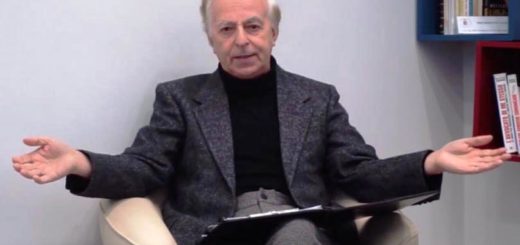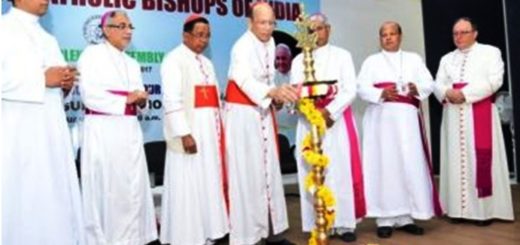Sr Berneice Loch: A year to find new ways to meet the Spirit

Source: Cath News
Francis dedicated 2015 to the promotion of consecrated life, asking the Church's religious sisters, brothers, and priests to "wake up the world" with their testimony of faith, holiness, and hope. Sr Berneice Loch, the president of Catholic Religious Australia, reflects on what that might mean.
In 1964, the year I entered the Sisters of Mercy of Rockhampton, the Beatles

toured Australia and New Zealand, our nation was engaged in the Vietnam War, Dawn Fraser was named Australian of the Year, and The Australian newspaper was first published.
The Mercies I joined was a vibrant group of more 260 sisters, engaged mainly in education and health and aged care, but also conducting or involved in numerous other ministries.
At the time I made the decision to dedicate my life in this way, it was a clearly made decision, a choice among real options but not one to take lightly. I felt called to join a group of women whom I saw as making a difference, doing a great deal of good.
It was at the time, however, a fairly simple decision, one confirmed many times since. Few Religious I know would claim to have stayed on for the reasons they first came. At the very least, they have explored the depths of that initial attraction and articulated much more clearly a theology that gives real meaning to their life choice.
The Congregation I entered was flourishing like many similar congregations in Australia at the time. In the Rockhampton Diocese, a rural Diocese of only moderate size, there were also numerous other Religious from several congregations.
Others have explored this sociological and ecclesial phenomenon at length and I will not attempt that here, but I think it is a reason for rejoicing that we have lived into an era in the Church during which lay women in particular, but lay men too, are recognised as having a real part in being Church.
This will eventually help us all clarify the place of Religious Life in the total Church.
The Pope’s invitation to a Year of Consecrated Life is very timely. Great change has occurred since Vatican Council II and it is time to take stock of this particular aspect of Church Life.
At the heart of Religious Life in any of its many forms is the call to seek God and be available to God’s Mission. This is the central focus of the life.
For many it is strongly linked to support for a range of public ministries in the Church, or else to direct engagement in ministry on behalf of the Church. In the wake of Vatican II, many religious set out to realise the vision of Church to which the council pointed. Just a little more than 50 years on, the concept of Religious Life has expanded greatly even while the numbers in the Western world at least have decreased sharply.
So what are my hopes for the Year of Consecrated Life? There are many but I will focus on just two.
In the first place, I would like to see a new, deeper understanding of what Church is and how every baptised person is a herald of the Good News.
Religious Life can only be its best when it claims its own place in clear relationship to all others in the Church. It is not, as was often taught before Vatican II, a higher form of life than lay membership of the Church.
Some Religious are also clerics, but the majority (sisters and brothers) are not. All of us, clerical Religious and other, have made a public statement of our commitment to Christianity through our profession of vows.
And that leads me to another of my hope for the Year of Consecrated Life.
Much of the language around Religious Life is poorly understood, if understood at all, by the rest of the Church.
The vows of Poverty, Chastity and Obedience are frequently perceived as vows of having no money, having no relationships of any depth, and having no free will. The perception is entirely negative.
Yet the vows properly understood are entirely positive in their orientation. They involve an attitude of joy in sharing our material goods and a spirituality of “enough”; a commitment to right relationships with all others, with all that exists and with God; and a commitment to careful listening to the voice of God in our lives through prayerful attention.
It would be wonderful if we could find during the Year of Consecrated Life, in the first instance a renewed understanding of the vowed life, and secondly a new language that would speak to a wider world about what Religious Life is about.
Do not expect that the Year of Consecrated Life will lead to a sharp increase in vocations even though that is what some long to see. “There are not enough vocations” is a constant cry but how many would be enough?
Many of us are observing not an increase in vocations as we have known them, but something new is happening.
There seem to be in our wider circles many women and men who are expressing a deep commitment to the message of Jesus lived through the charism of our Congregations.
These people are responding to “a call” but it appears not to be a call to a traditional form of Religious Life. Perhaps the Year of Consecrated Life can take us some of the way to the recognition of new ways in which the Spirit is active in our midst, inviting the emergence of new forms of
Consecrated life and indeed this is happening. Who knows what will be learnt and experienced by the end of this wonderful period of reflection?
















